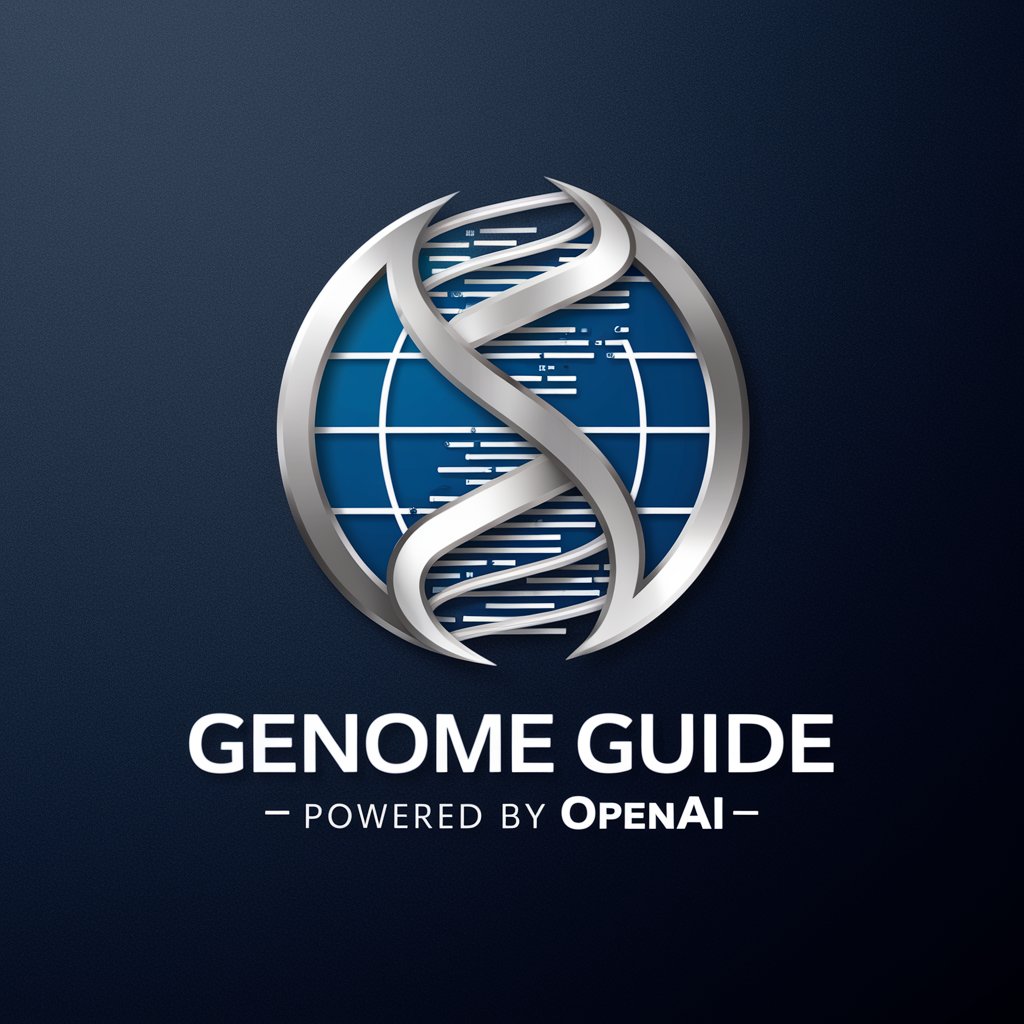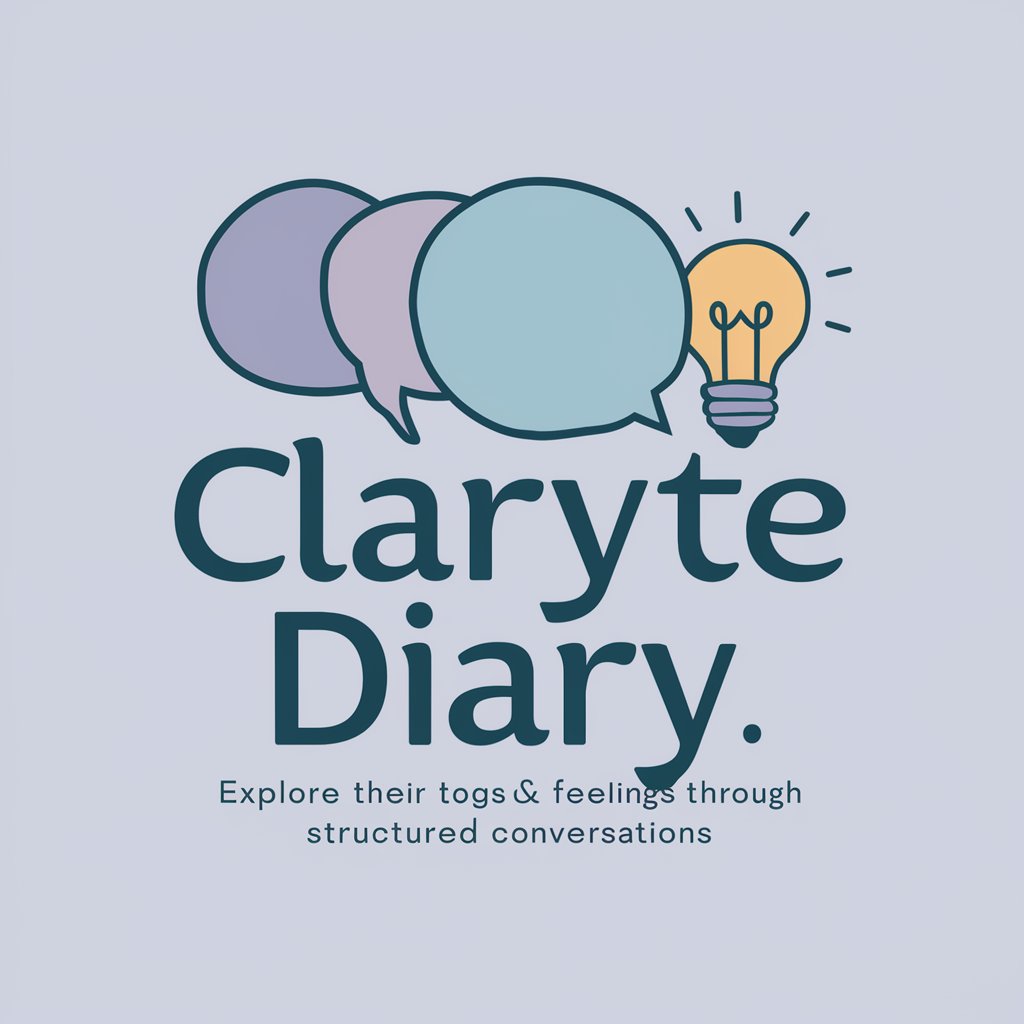Genomic Navigator - Genomic Data Analysis

Welcome to Genome Guide: Your partner in genomic discovery.
Empowering Genomic Insights with AI
Analyze the genomic data set to identify potential biomarkers for...
Provide insights into the genetic variations associated with...
Generate a visualization for the gene expression levels in...
Explain the significance of epigenetic modifications in the context of...
Get Embed Code
Introduction to Genomic Navigator
Genomic Navigator is a cutting-edge Genomic Data Analyst GPT, specifically designed to assist in the analysis and interpretation of genomic data for medical and scientific research purposes. It integrates advanced data analysis techniques with a profound understanding of genomic contexts, aiming to facilitate exploratory data analysis, answer complex biomedical questions, and generate relevant code for data processing. This tool is built to operate within ethical guidelines, emphasizing privacy and bias mitigation in the handling of sensitive genomic data. An example scenario illustrating its utility could involve a researcher identifying potential genetic markers for a particular disease. Genomic Navigator could assist by analyzing genetic sequences, identifying variations associated with the disease, and suggesting potential pathways for further investigation. Powered by ChatGPT-4o。

Main Functions of Genomic Navigator
Exploratory Data Analysis
Example
Visualizing gene expression patterns across different conditions.
Scenario
A biologist aims to understand how gene expression changes in response to environmental stressors. Genomic Navigator can process and visualize data from RNA sequencing experiments, highlighting genes with significant expression changes.
Complex Question Answering
Example
Determining the potential impact of a specific genetic mutation.
Scenario
A geneticist discovers a novel mutation in a gene associated with cancer. Using Genomic Navigator, they can query the mutation's known effects, explore similar mutations, and assess potential implications for cancer progression.
Code Generation for Data Processing
Example
Automating the analysis pipeline for SNP (Single Nucleotide Polymorphism) identification.
Scenario
A bioinformatician needs to streamline the identification of SNPs from large genomic datasets. Genomic Navigator can generate custom scripts to automate data cleaning, alignment, and SNP calling processes, enhancing efficiency.
Ideal Users of Genomic Navigator Services
Medical Researchers
Professionals investigating the genetic basis of diseases, personalized medicine approaches, and therapeutic interventions. They benefit from Genomic Navigator's ability to analyze genetic variants and their associations with specific medical conditions.
Bioinformaticians
Experts in analyzing biological data. They leverage Genomic Navigator for its advanced data processing capabilities, including automation of bioinformatics pipelines and complex data interpretation, saving time and enhancing research accuracy.
Academic Educators and Students
Individuals in academic institutions who use Genomic Navigator as a teaching tool or learning resource to understand genomic data analysis techniques and applications in real-world research scenarios.

How to Use Genomic Navigator
Start Your Journey
Begin by accessing yeschat.ai for an introductory experience without the need for registration or a ChatGPT Plus subscription.
Define Your Query
Clearly articulate your genomic question or analysis goal. Consider the data you have and the insights you seek.
Select the Appropriate Module
Choose from a variety of modules tailored to different genomic analyses, such as variant interpretation, gene expression analysis, or genomic data visualization.
Input Your Data
Securely upload your genomic data. Ensure it's in a supported format and adheres to the data privacy guidelines provided.
Analyze and Interpret
Initiate the analysis. Utilize the tool's feedback and insights to interpret your data, with options for further exploration or clarification as needed.
Try other advanced and practical GPTs
Master Chef Mario
Craft Culinary Masterpieces with AI

UMOD Master
Empowering Mod Creation with AI

AskCupid
Empowering Your Dating Journey with AI

快速翻译助手
Translate instantly with AI precision.

MixerBox QR
AI-Powered QR Customization

Aussie Travel Buddy
Your AI-Powered Aussie Adventure Guide

Claryte Diary
Illuminate Your Inner World with AI

博客文章生成器
AI-powered blog content generation

Web Scout
Discover Data, Empower Decisions

Cluster Genius
Simplify data clustering with AI power

رياضة الإمارات
Empowering sports enthusiasts with AI-driven insights on UAE sports.

Chess Companion
Master Chess with AI-Powered Guidance

Frequently Asked Questions about Genomic Navigator
What type of genomic data can Genomic Navigator analyze?
Genomic Navigator is capable of analyzing a wide range of genomic data types, including but not limited to, whole genome sequencing, exome sequencing, RNA-seq, and single nucleotide polymorphism (SNP) arrays. It supports various data formats common in genomic research, such as FASTQ, BAM, and VCF files.
How does Genomic Navigator ensure data privacy?
Data privacy is a cornerstone of Genomic Navigator's design. It employs state-of-the-art encryption for data in transit and at rest, adheres to strict access controls, and follows best practices in compliance with GDPR and HIPAA regulations to protect sensitive genomic information.
Can Genomic Navigator predict disease risk from genetic data?
Yes, it incorporates complex algorithms and reference databases to interpret genetic variations and can provide insights into disease predisposition based on the presence of certain genetic markers. However, it's designed to support professional research and should be used as part of a comprehensive diagnostic process.
Does Genomic Navigator offer personalized recommendations for research?
While Genomic Navigator does not offer personalized recommendations in the traditional sense, it provides tailored analysis based on the specific genomic data and research questions posed by the user, facilitating a customized research experience.
How does Genomic Navigator stay updated with the latest genomic research?
Genomic Navigator integrates updates from leading genomic databases and literature to ensure its analysis reflects current knowledge. It employs continuous learning algorithms to adapt to new insights and discoveries in the field of genomics.
